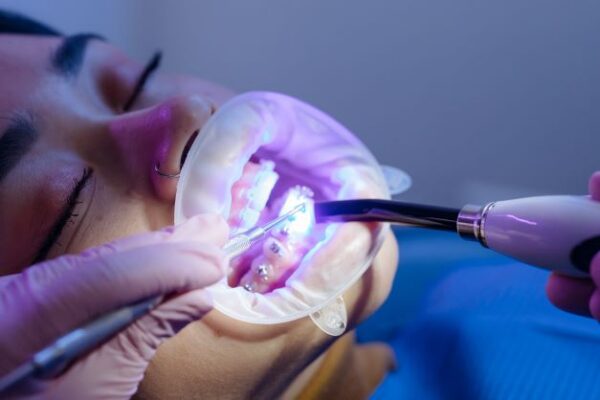Sudden Misaligned Jaw: Causes and Treatment Options
Do your jaws make a clicking sound when you chew or yawn? If yes, you might be suffering from sudden misaligned jaw. This condition can lead to pain and discomfort when you talk, eat, or breathe! Don’t wait until the pain increases before you do something about it; take time to learn about sudden misaligned jaw and its causes and treatment options.
What Causes Sudden Misaligned Jaw
Symptoms of sudden misaligned jaw include a clicking sound in your jaw area, pain in the jaw joint, difficulty or pain in chewing food, and tightness in the jaw. But what causes sudden jaw misalignment?
First on the list of potential causes for the sudden misaligned jaw is temporomandibular joint disorder (or TMJ disorder). TMJ is a common condition that affects the joints between the upper and lower jaws. This condition can lead to severe complications, such as persistent pain, crooked jaws, and inflammation.
Trauma or injury is another common cause of sudden misaligned jaw. The impact can cause some parts of the jaw to become broken or fractured. It can even dislocate your jaw joints. If these injuries are minor, they will heal on their own. But if the impact is severe, you must undergo corrective surgery to stabilize the jaw.
Another common cause for sudden misaligned jaw is malocclusion or teeth misalignment. When your teeth are misaligned, it can cause your jaw to become misaligned, too. Problems with teeth alignment can be hereditary or due to tooth loss, poorly fitting braces, or thumb sucking as a child.
Symptoms of Jaw Misalignment
- Pain when chewing
- Ears popping at unusual times
- Unable to bite down fully; gaps in teeth when biting down
Sudden Misaligned Jaw Treatment Options
If your jaw misalignment is a minor problem, you won’t need treatment and it will correct itself over time. But if the misalignment is severe, you may want to consider any of the following treatment options:
- Braces – This dental appliance is recommended for misaligned jaws due to teeth misalignment. Correcting the alignment of your teeth will also help properly align your jaws.
- Dental Bridges – A dental bridge fills the gap of a missing tooth (or teeth) to avoid the development of an abnormal bite that could affect the positioning of your jaws.
- Jaw Surgery – Surgery is recommended for advanced cases of jaw misalignment. Surgery is also accompanied by other orthodontic treatments.
- Genioplasty: Reshapes or repositions the chin for aesthetic or functional purposes. It can involve moving the chin bone forward, backward, or to the side, or using implants to achieve the desired contour.
- Maxillary osteotomy: Corrects misalignment of the upper jaw. It involves cutting and repositioning the maxilla to improve bite, facial symmetry, and function, often addressing issues like overbites, underbites, and open bites.
- Mandibular osteotomy: Corrects misalignment of the lower jaw. It involves cutting and repositioning the mandible to improve bite, facial balance, and function, addressing issues like underbites, overbites, and jaw asymmetry.
What is the Cost of Treating a Misaligned Jaw in Canada?
The cost of correcting sudden misaligned jaw in Canada varies based on the severity of the problem and where you undergo the procedure. For simple cases of a misaligned jaw to malocclusion, you can get braces for $3,000 to $7,000, depending on the type of materials used for the braces and the clinic that performs the procedure.
But for cases requiring jaw (orthognathic) surgery, the cost of the procedure in Canada starts at $3,000 and can cost up to $80,000. Make sure you compare quotes to ensure that you have the correct procedure at a price that you can afford. Aside from the cost, you should consider the clinic’s reputation and expertise level to ensure that you have the best results. Visit Edmonton Smiles, trusted TMJ specialist in Edmonton, if you’re experiencing pain from a misaligned jaw or recent injury.
In the Meantime: Pain Management
A misaligned jaw can hurt around the clock, or from simple activities like sneezing, talking, and eating. Here are some tips to help while you wait for treatment:
- Apply Ice or Heat: Use ice packs to reduce inflammation and numb the area, or apply warm compresses to relax the muscles and improve blood flow.
- Over-the-Counter Pain Relief: Nonsteroidal anti-inflammatory drugs (NSAIDs) like ibuprofen can help alleviate pain and reduce inflammation.
- Soft Diet: Stick to soft foods that require minimal chewing to avoid straining your jaw.
- Jaw Exercises: Gentle stretching and strengthening exercises prescribed by a physical therapist can improve jaw function and reduce pain.
- Stress Management: Techniques like meditation or yoga can help reduce stress, which may contribute to jaw tension and pain.


